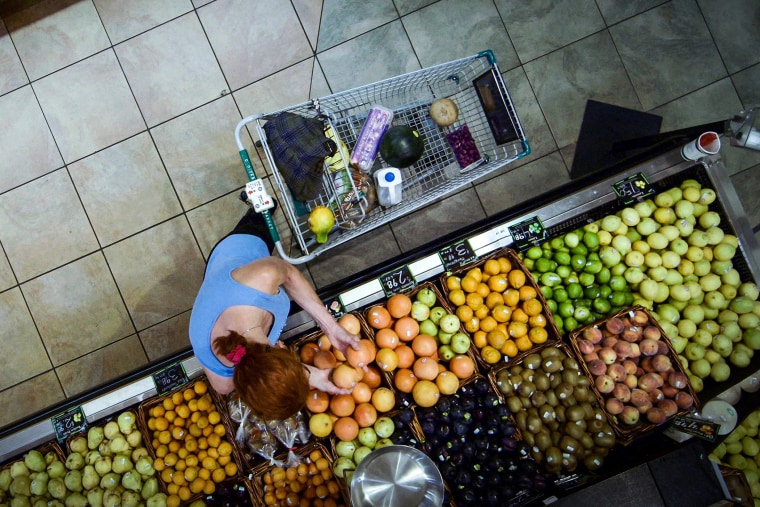Following a series of major food-safety controversies in the Bush/Cheney era, Democrats approved a sweeping overhaul of the nation's food-safety system in 2010, expanding the FDA's ability to recall tainted foods and increasing inspections. It was the biggest effort on food safety in more than 70 years, all in the hopes of preventing unsafe food from reaching consumers' tables.
Shortly before getting elected, Donald Trump and his team made clear they had no use for the improved safeguards. As regular readers may recall, when the Trump campaign pointed to some of the "regulations" the Republican opposed, it specifically complained about the "FDA Food Police."
In other words, there were already concerns about how this administration would protect the safety of Americans' food. Trump's government shutdown, however, has made matters quite a bit more serious.
The ongoing federal government shutdown has stopped most food safety inspections, but the Food and Drug Administration is planning to resume at least some of them. To do it, the agency will have to force furloughed workers to come back without pay. [...]... FDA inspectors are not looking for salmonella in breakfast cereal, E. coli in romaine lettuce, or listeria in ice cream. Companies can still make their own checks, of course, and the FDA is still announcing those recalls.Foreign food inspections are also continuing, almost as normal, because they're considered so important. But the FDA has virtually stopped inspecting domestic food production facilities, which could mean threats to the public are going undetected.
FDA Commissioner Scott Gottlieb conceded to NBC News, in reference to the agency he leads, "There are important things we are not doing."
He later added on Twitter that the FDA is "working to continue" high-risk inspections, which didn't exactly set minds at ease.
A Washington Post report added that the FDA is "working on a plan to bring inspectors back as early as next week to inspect facilities considered high-risk because they handle sensitive items such as seafood, soft cheese and vegetables, or have a history of problems."
Of course, we don't yet know whether that plan will come together, how many high-risk plants will be covered, and how sustainable the plan will be if the Trump White House keeps the shutdown going for months.
Sarah Sorscher, an official at the Center for Science in the Public Interest, told the Post that this situation "puts our food supply at risk."
The good news is, this is the kind of story that only affects people who eat food. Everyone else has no cause for concern.
